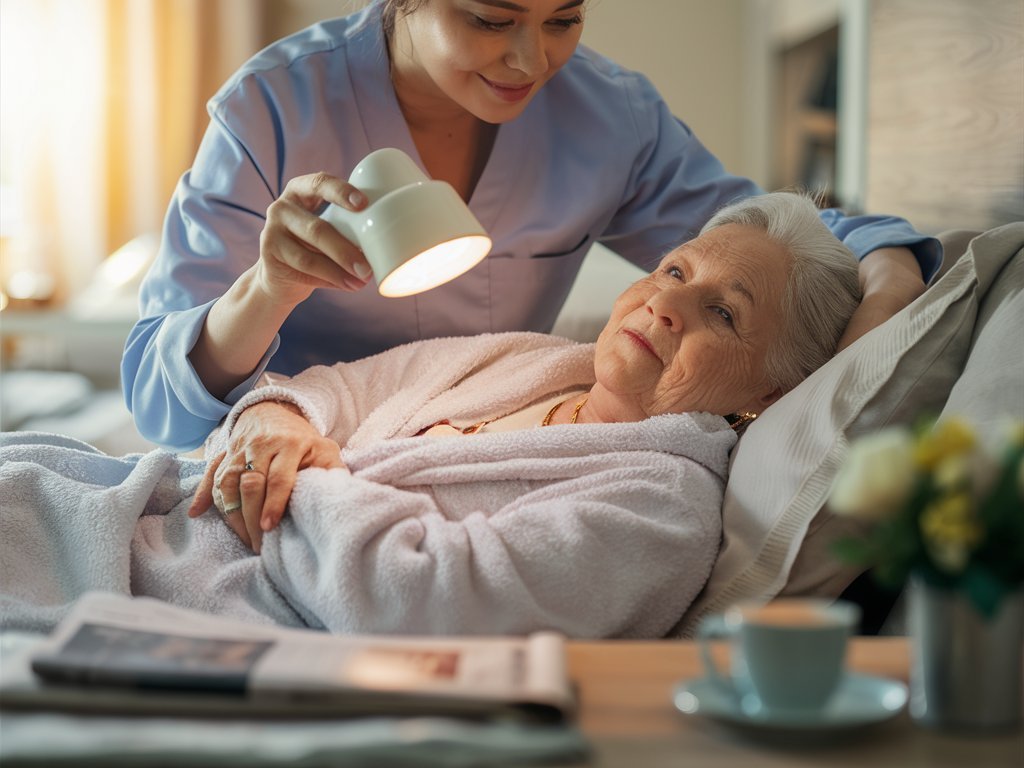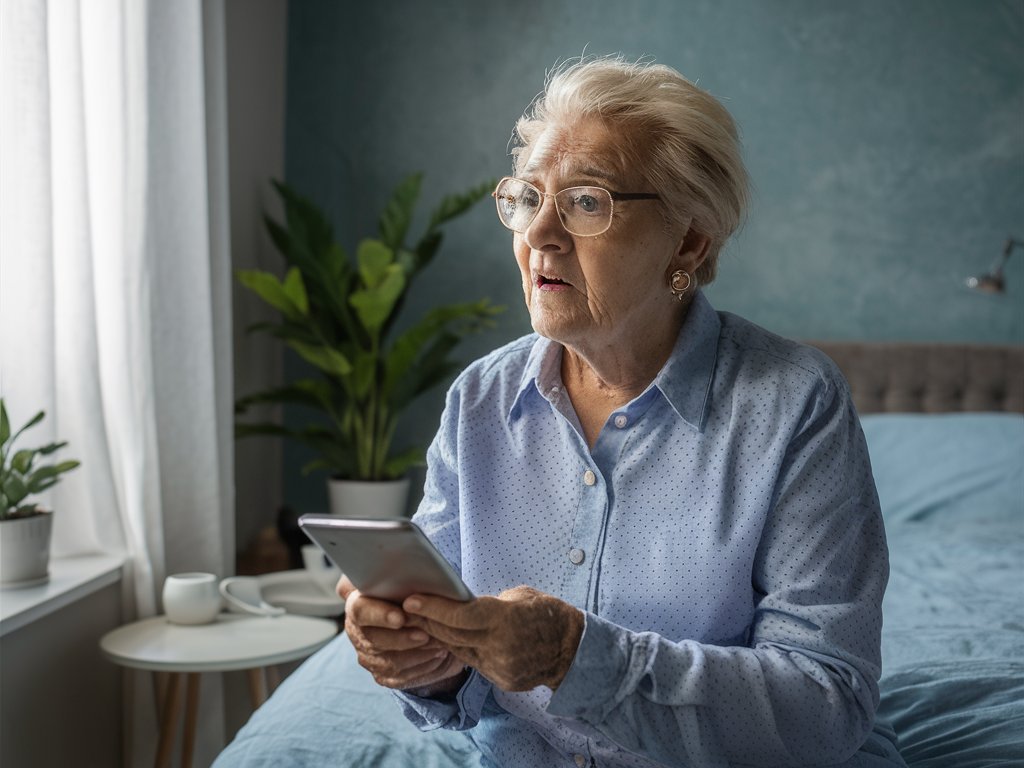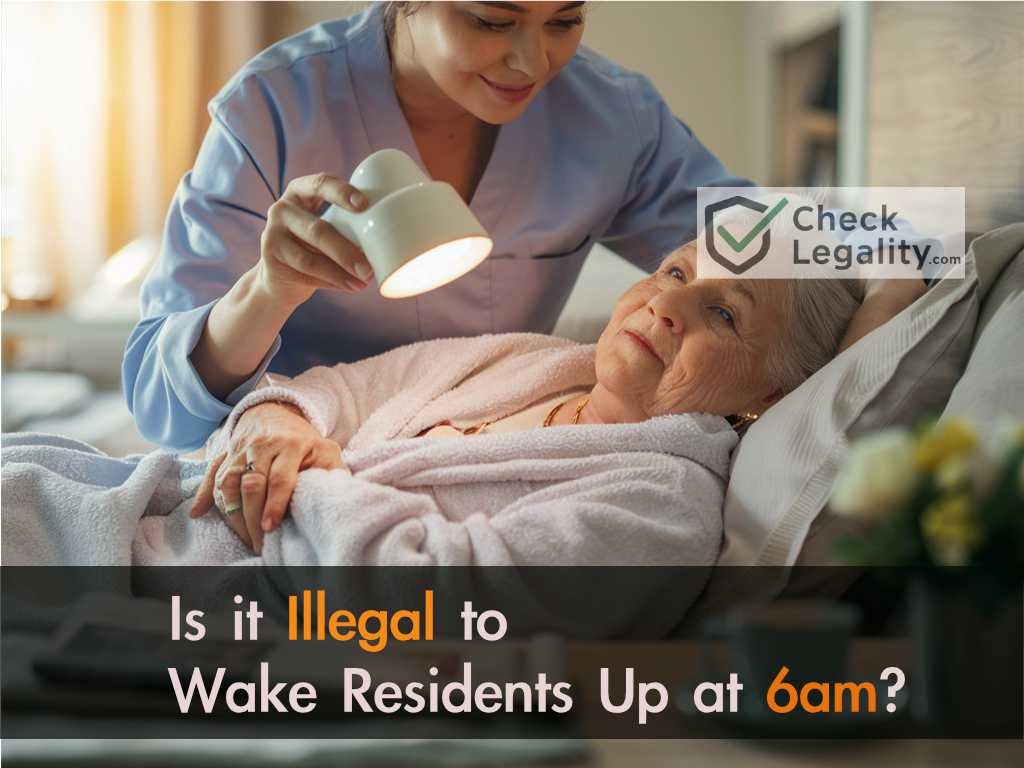As with many things, responding to the question: is it illegal to get residents up before 6am requires a more tailored response than the usual response. Join us as we check the legality of this question.
In most cases, there are no laws dictating the specific time residents in a care facility, live-in staff, or tenants can be woken up. However, the legality revolves around ensuring the individual’s well-being and respecting autonomy.
Here are a certain key point for consideration:
Resident-Centered Care:
- Individualized Care Plans: The cornerstone of ethical care in any facility lies in personalized care plans. These plans should document a resident’s sleep patterns, preferences, and any medical conditions that might influence their sleep needs. Waking residents up before 6 am should only occur if it aligns with their individual needs and preferences outlined in the plan. This ensures that residents who naturally wake up early are not forced to lie in bed for extended periods, while those who require more sleep can rest for a sufficient amount of time.
- Respecting Autonomy: It is crucial to respect the resident’s autonomy regarding sleep schedules as much as possible. Unless there’s a medical necessity or safety concern, residents should have a say in when they wake up within reasonable boundaries. This could involve consulting with the resident or their family members to determine a wake-up time that allows them to feel refreshed and function well throughout the day.
- Preserving Circadian Rhythms: Ideally, wake-up times should consider a resident’s natural sleep-wake cycle, also known as their circadian rhythm. Disrupting these natural rhythms can lead to sleep disturbances, daytime fatigue, and even negative impacts on mood and overall health. Care plans that consider a resident’s circadian rhythms whenever possible can promote better sleep quality and improve their overall well-being.

Balancing Needs with Medical Requirements:
- Medical Necessity: Certain medical conditions or medications might require waking residents earlier for medication administration or treatment procedures. However, these instances should be documented and justified within the resident’s care plan. Consulting with healthcare professionals can help determine the most appropriate times for administering medications or performing treatments while minimizing the resident’s sleep schedule disruption.
- Communicating with Families: It is crucial to keep families informed and involved in a resident’s care plan. Discussing wake-up routines and ensuring they align with the resident’s preferences fosters a sense of trust and shared decision-making. Open communication between families, staff, and the residents themselves is essential in determining a wake-up time that balances the resident’s needs with any medical necessities.
Regulations and Best Practices:
- State Regulations: While there might not be specific laws about wake-up times, some states have regulations regarding resident care in long-term care facilities. These regulations often emphasize resident dignity, respect for choices, and individualized care plans. Familiarizing yourself with your state’s specific regulations is essential.
- Professional Guidelines: Organizations like the American Health Care Association and National Center for Assisted Living (AHCA/NCAL) publish comprehensive guidelines that promote resident-centered care. These guidelines go beyond simply avoiding unnecessary disruptions to sleep schedules. They emphasize the importance of creating a sleep-supportive environment. This includes maintaining consistent sleep-wake cycles, minimizing noise and light disturbances at night, and ensuring residents have access to comfortable bedding and pillows. The AHCA/NCAL guidelines also recommend promoting relaxation techniques before bedtime and encouraging physical activity during the day, as these practices can contribute to better sleep quality. Ultimately, following these guidelines fosters a care environment that respects resident autonomy and circadian rhythms, while also promoting restorative sleep that is essential for overall health and well-being.

The Importance of Communication:
- Family Involvement: Keeping families informed and involved in a resident’s care plan is crucial. Discussing wake-up routines and ensuring they align with the resident’s preferences fosters a sense of trust and shared decision-making.
- Staff Training: Care staff should be adequately trained on the importance of respecting resident autonomy and individual sleep needs. This training should emphasize the importance of following personalized care plans and minimizing unnecessary disruptions.
Alternatives to Early Wake-Up Calls:
- Nighttime Care: Whenever possible, consider providing necessary care, like medication administration, during the resident’s waking hours at night. This approach minimizes disruption to their sleep schedule.
- Flexible Scheduling: If early morning wake-up times are unavoidable, consider scheduling activities or therapies that require residents to be awake for later in the morning. This allows them to sleep in as much as possible within reasonable limits.
Other instances worth considering:
In Private Residences
In private homes, where individuals or families live without external regulations imposed by landlords or care providers, the decision to wake up before 6 a.m. is typically a personal choice. No laws directly prohibit residents from waking early. However, noise ordinances enacted by local municipalities may indirectly affect how early activities can begin, especially if they involve loud noises that could disturb neighbors.
Rental Properties
For rental properties, lease agreements and local tenancy laws primarily govern the relationship between landlords and tenants, including any stipulations about noise or disturbances. While landlords can impose rules about noise levels to ensure a peaceful environment for all tenants, specifying wake-up times is generally outside their purview. Tenants have the right to quiet enjoyment of their property, which means they can wake up at any time they choose, provided their activities do not infringe on the rights of others to a peaceful living environment.
Employment Laws and Live-in Workers
For live-in employees, such as caretakers or domestic workers, employment laws and the specific terms of their employment contracts come into play. These laws often stipulate maximum working hours, rest periods, and conditions of work, which would include wake-up times. Forcing an employee to start work before 6 a.m. could be legal if it’s agreed upon in the contract and complies with local labor laws regarding work hours and rest periods.
Conclusion:
So, the answer to the question whether it’s It Illegal to Get Residents Up Before 6am can either be a yes or no, depending on a few factors as mention above.While there’s no blanket law regarding wake-up times in care facilities, the focus should always be on resident well-being, respecting autonomy, and adhering to individualized care plans. Open communication between staff, residents, and families is crucial in ensuring a balanced approach that prioritizes both resident needs and adherence to relevant regulations.
FAQs on Is It Illegal to Get Residents Up Before 6am?
Is it illegal for my landlord to dictate when I must wake up?
Generally, no. Landlords can set rules regarding noise but dictating specific wake-up times would likely overstep legal boundaries and infringe on your rights as a tenant.
Can a care home set a mandatory wake-up time for residents?
Care homes can have routines, but these should not infringe on the rights and dignity of residents. Mandatory early wake-up times must have a justifiable basis tailored to individual needs and preferences.
Is it legal for my employer to require me to start work before 6 a.m.?
If you are a live-in worker, this depends on your contract and local employment laws. It’s crucial for such terms to be agreed upon in writing, within the framework of legal standards for working hours and rest.
Do noise ordinances affect wake-up times?
Indirectly, yes. Activities associated with waking up (e.g., playing loud music) that disturb others could be restricted under local noise ordinances, especially during early morning hours.


